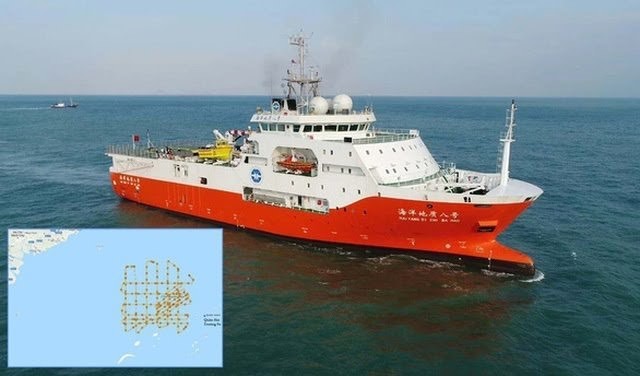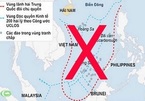VietNamNet would like to introduce the second part of Ambassador Nguyen Hong Thao's article.
After four years, the impact of the Permanent Court of Arbitration (PCA)’s ruling has divided countries into two groups. The ASEAN countries that directly or indirectly involve in the East Sea disputes, all adjusted their positions according to the ruling and all agree in common that UNCLOS is the only legal basis for the settlement of maritime disputes.
The 36th ASEAN Summit on June 26, 2020 affirmed that the UNCLOS is the basis for defining maritime titles, sovereignty rights, jurisdiction and legitimate interests in the seas and the UNCLOS defines the legal framework for the conduct of all ocean and marine operations.
The ruling encourages and serves as a fulcrum for ASEAN countries in their struggle for a law-based order with the central role of ASEAN to achieve the goal of peace, stability and dynamism.
China tries to interpret the UNCLOS in a way that benefits itself
 |
|
Chinese militia fishing vessel escorting Hai Duong 8 geological survey ship operated illegally in Vietnam’s Tu Chinh (Vanguard bank)
|
China is alone in its arguments on historic rights and requirements that all entities, regardless of whether they are land features or semi-submersible, submerged entities, have sovereignty and territorial waters, which go against the provisions of international law, including UNCLOS. While the Chinese Foreign Ministry spokesperson at a press conference on July 17, 2020 said that Okinotori in the East China Sea is a rock, not an island, and does not have the right to have exclusive economic zones and continental shelf.
So what's the difference between Okinotori and land features in the East Sea? Is it a double standard that interpretes UNCLOS in its favor, not derived from the common perception of the international community?
China increases threats and oppression
The ruling’s increasing presence in the political and legal life of the region is partly in part due to an increase in Chinese activities of intimidation and repulsion of fishing boats and fishermen of other countries in the East Sea. In 2019, Chinese vessels abandoned 22 Filipino fishermen who were sunk in the sea. Chinese geological research vessel Haiyang Dizhi 8 entered Vietnam’s block 06.01. In 2020, China regularly used repressive power, with higher frequencies covering all of the seas within the 9-dash line.
Vietnamese fishing vessels were hit to sunken, Filipino ships were locked by Chinese vessels, Indonesia discovered Chinese ships around Natura and West Capella was harassed in the Malaysian continental shelf, Noble Clyde Boudreaux terminated its exploration and evaluation contract and Repsol withdrew from lots near Tu Chinh (Vanguard bank) all showed signs of intimidation from China.
The peak is that China defiantly announced the establishment of two administrative districts of Nansha and Xisha in April 2020. That is not to mention the activities of naming submerged entities on the Vietnamese continental shelf, setting up scientific research stations on artificial islands, sending fighter jets to Truong Sa and Hoang Sa, increasing exercises in the East Sea, maintaining a fishing ban and a ban on seabed activities under the Blue Sea Code campaign launched in April 2020.
Legal solution
The ruling sets the precedent for countries to pursue a legal solution when one party insists on having "undisputed sovereignty", "have been governing the islands and the sea for thousands of year" without convincing evidence and just want to use force.
However, a legal solution is only the last resort when negotiation comes to a deadlock and war is close. A good ruling if not being implemented will not lead to the desired results. The more countries support it, the more likely the ruling will become the coercive customary rules of international law.
The principle of "Land dominates the sea" from the 1969 North Sea continental shelf ruling has become a recognized customary rule. The power of justice and international public opinion will bring the full enforcement of the ruling.
There are precedents such as the nuclear weapons trials of New Zealand and Australia’s lawsuit against France in 1974; Nicaragua suing the US in 1985; or the Netherlands suing Russia in 2013 in case of the Arctic Sunrise ship of the Green Peace Organization ... were initially rejected, but after decades the rulings were quietly implemented.
Not only the governments but people all over the world, especially the Chinese people, need to know the ruling, to the "non-negotiable" conclusion of the ruling. Any attempt to put its own rules on top of the UNCLOS cannot go against the wheel of history.
Nguyen Hong Thao

Four years since the East Sea ruling
On 12 July 2016, the tribunal ruled in favor of the Philippines, declaring China’s “claims to historic rights, or other sovereign rights or jurisdiction” related to the “nine-dash line” as unlawful.